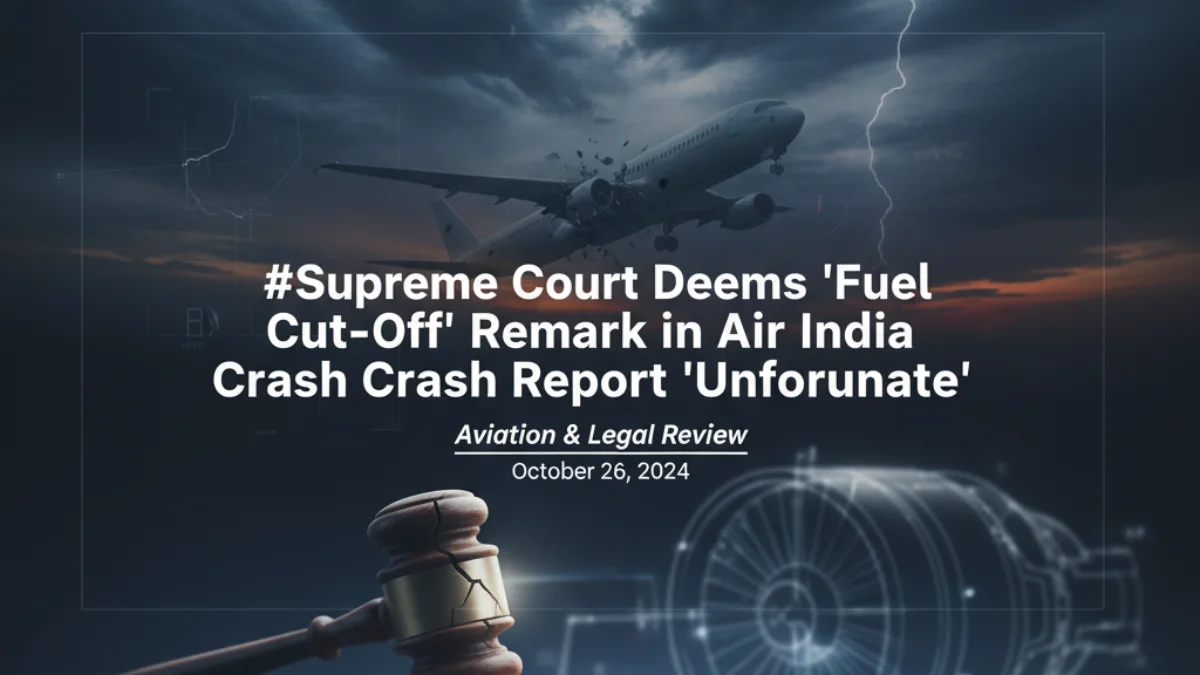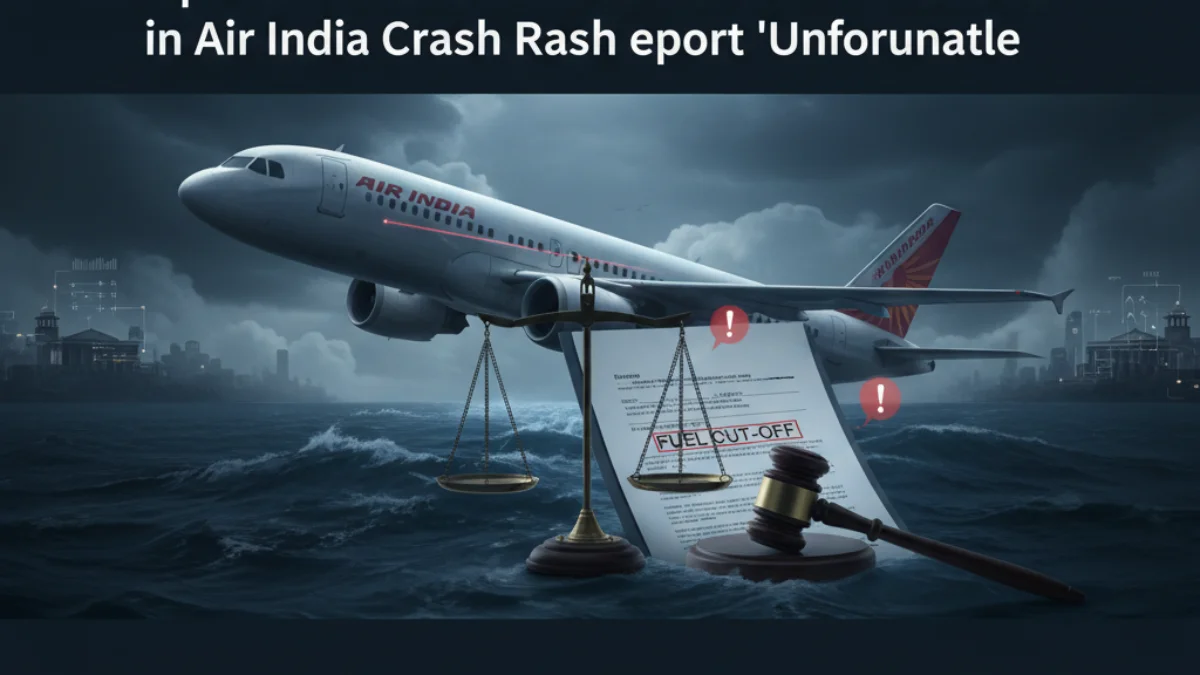Introduction:
The Supreme Court of India expressed strong displeasure on September 22, 2025, labeling the Aircraft Accident Investigation Bureau's (AAIB) mention of a pilot's "fuel cut-off" in the preliminary report on the fatal Air India Flight 171 crash as "very unfortunate."
The Ahmedabad crash on June 12, 2025, claimed 260 lives—241 on board and 19 on the ground—when the Boeing 787-8 Dreamliner plummeted shortly after takeoff, with fuel switches flipping to "cut-off" three seconds airborne, starving engines.
The Supreme Court Hearing: PIL and Court Remarks
Safety Matters Foundation's PIL, filed September 19, 2025, challenges the AAIB's preliminary report for incomplete disclosure, violating citizens' rights under Articles 14 (equality), 19(1)(a) (free speech), and 21 (life).
The bench termed the mention "irresponsible" and "very unfortunate," noting it fueled media speculation before the full probe.

AAIB Report Controversies: Fuel Switches and Pilot Confusion
The July 12, 2025, preliminary report, released under Rule 11 of the 2017 Investigation Rules, identified the fuel switches moving to "cut-off" three seconds after takeoff, causing engine shutdown.
Critics, including the PIL, argue it withholds data like DFDR outputs and 2018 FAA bulletins on switch defects, prematurely implying error and tarnishing reputations.
PIL Demands: Full Disclosure and Independent Probe
The PIL seeks:
- Court-monitored independent investigation.
- Disclosure of DFDR, full CVR with timestamps, fault messages, maintenance history.
- Scrutiny of systemic anomalies like fuel-switch defects.
It invokes the 2017 Rules mandating public factual data in preliminaries.
Historical Context: Air India Crashes and Probes
The June 12 crash, killing 260, is Air India's deadliest since 1985's Flight 182 (329 dead).
Statistics: Crash Toll and Probe Timeline
- Deaths: 260 (241 onboard, 19 ground).
- Survivors: 1 (co-pilot Clive Kunder).
- Timeline: Crash June 12; report July 12; PIL September 19; hearing September 22.
| Milestone | Date |
|---|---|
| Crash | June 12, 2025 |
| Preliminary Report | July 12, 2025 |
| PIL Filed | September 19, 2025 |
| SC Hearing | September 22, 2025 |
Expert Opinions
ALPA India's Sam Thomas: "Speculation over transparency; review maintenance."
Potential Impacts
The SC's push for disclosure could delay the final report (due December 2025), enhancing safety but straining AAIB resources.
Conclusion
The Supreme Court's "unfortunate" remark on the Air India crash report's fuel cut-off mention, issued September 22, 2025, demands transparency in the June 12 tragedy probe. With notices to the Centre, it prioritizes facts over speculation. Updates at nuvexic.com.
FAQ
SC's remark?
"Very unfortunate" on pilot fuel cut-off mention.
PIL by?
Safety Matters Foundation.
Deaths?
260.
Report date?
July 12, 2025.
Pilots' experience?
19,000+ hours combined.
Next hearing?
October 2025.



